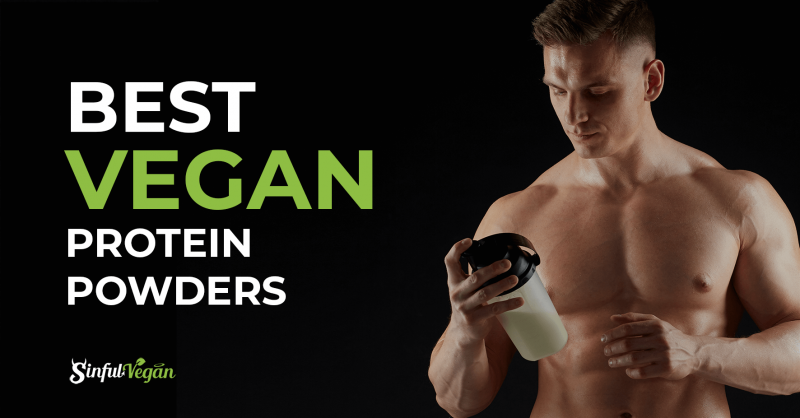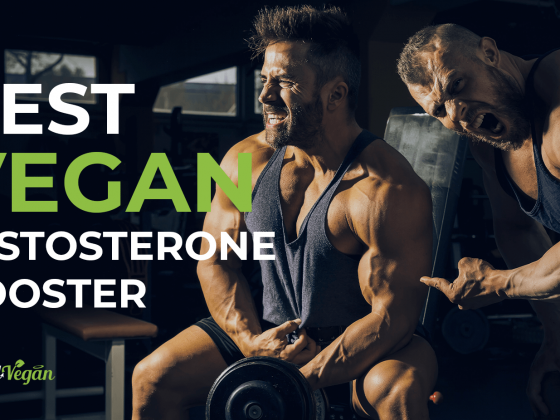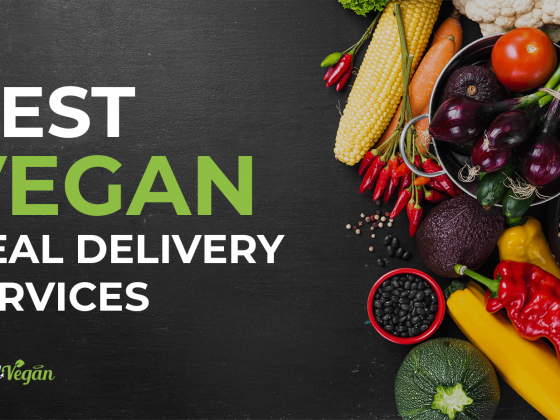Table of Contents
Are you looking for the best vegan protein powders on the market today?
Vegans can choose from many options – like protein sources based on brown rice, hemp, or soy.
You would expect the nutritional value of a vegan protein powder to be the same as whey protein. It should also contain all the essential amino acids needed for the body.
Product Review
Here we review the top ten vegan protein powders available to help you decide.
Best Pick
Transparent Labs Organic Vegan Powder
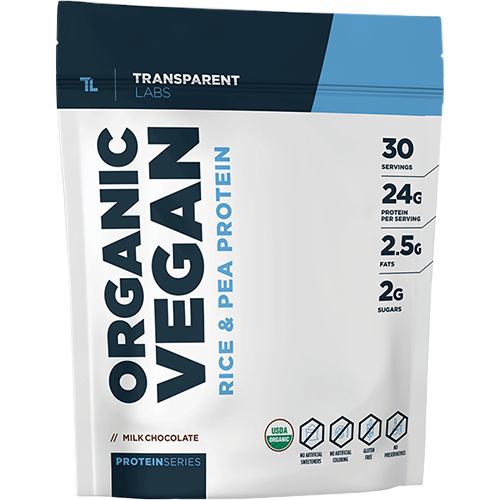

Transparent Labs Organic Vegan powder. It’s a protein product made from the best vegan protein sources. Its organic, contains plant protein, and fiber-per-serving makes it a clear winner.
Budget Pick
Bulk Supplements Pea Powder
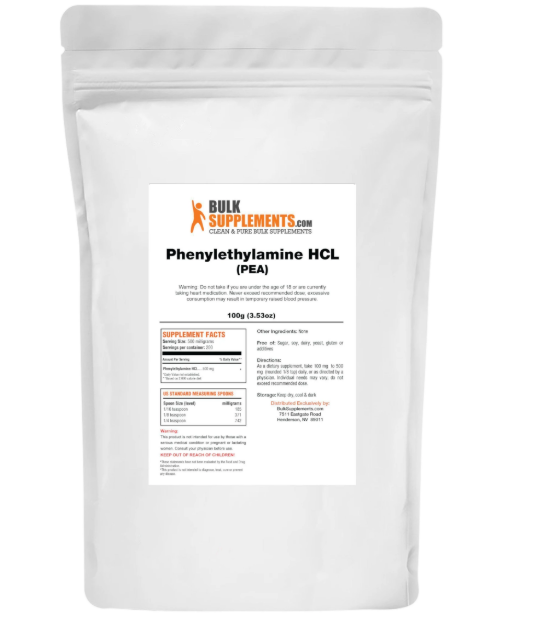

Our pick for the cheapest vegan protein powder is BulkSupplements pea powder. If you want a budget friendly, non-allergenic, gluten and soy-free choice.


Non-gritty texture and clean flavor makes this protein powder our best pick.
The calorie count per serving is 140. Each serving has 24 grams of pea and rice protein with very little carbohydrates and low fat. If building lean muscle is your aim, Transparent Labs Organic Vegan is a great choice. Fiber content of 4 grams per serving is an added plus for digestion.
Pros
- Clean flavor without an aftertaste.
- Each serving packs 24 grams of protein.
- 4 grams of fiber per serving, which aids digestion.
- Non-GMO, no fillers, gluten-free.
- USDA Organic Certified.
Why we liked it:
Transparent Labs Organic Vegan protein powder contains a high amount of protein. It helps build muscle and contains fiber that is friendly for the gut. It is also a gluten-free vegan protein, and non-GMO.
2. Performance Lab® Protein
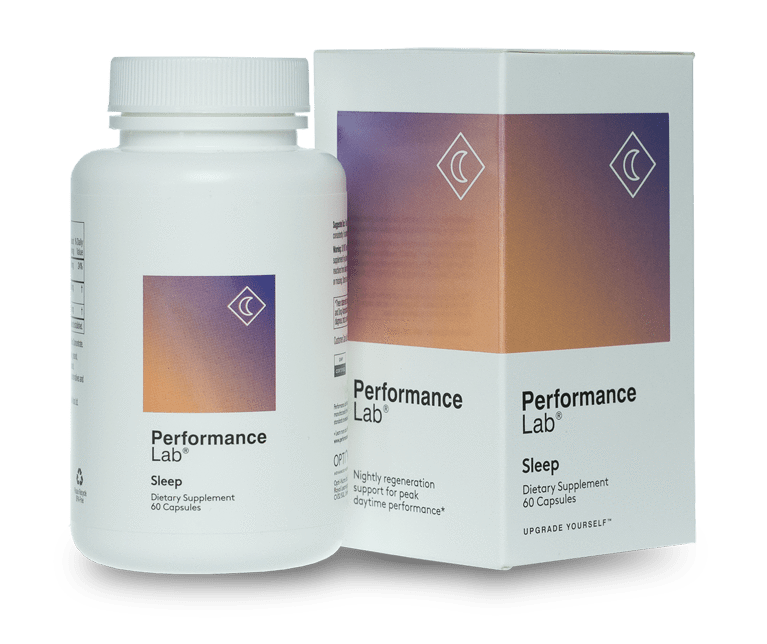

Performance Lab® protein powder was formed recently, is already very popular.
It is one of the cleanest plant-based protein powders available. It also doesn’t contain artificial flavors or fillers. It’s made without any chemical processing, and it is a completely organic vegan protein powder. The protein source in Performance Lab® protein powder is whole brown rice.
Whole brown rice builds muscle mass, like whey protein, which is a huge bonus.
Pros
- High in protein in each serving (20g)
- Low fat content per serving (only 1.2 g)
- Low per-serving calories (100 g) and carbs (2 g)
- 100% organic plant protein
- Cleanest option available: no chemical processing, no artificial flavors or fillers added.
Why we liked it:
We liked the combined taste of Ceylon cinnamon, vanilla and organic cocoa.
3. Orgain Organic Plant-Based Protein Powder
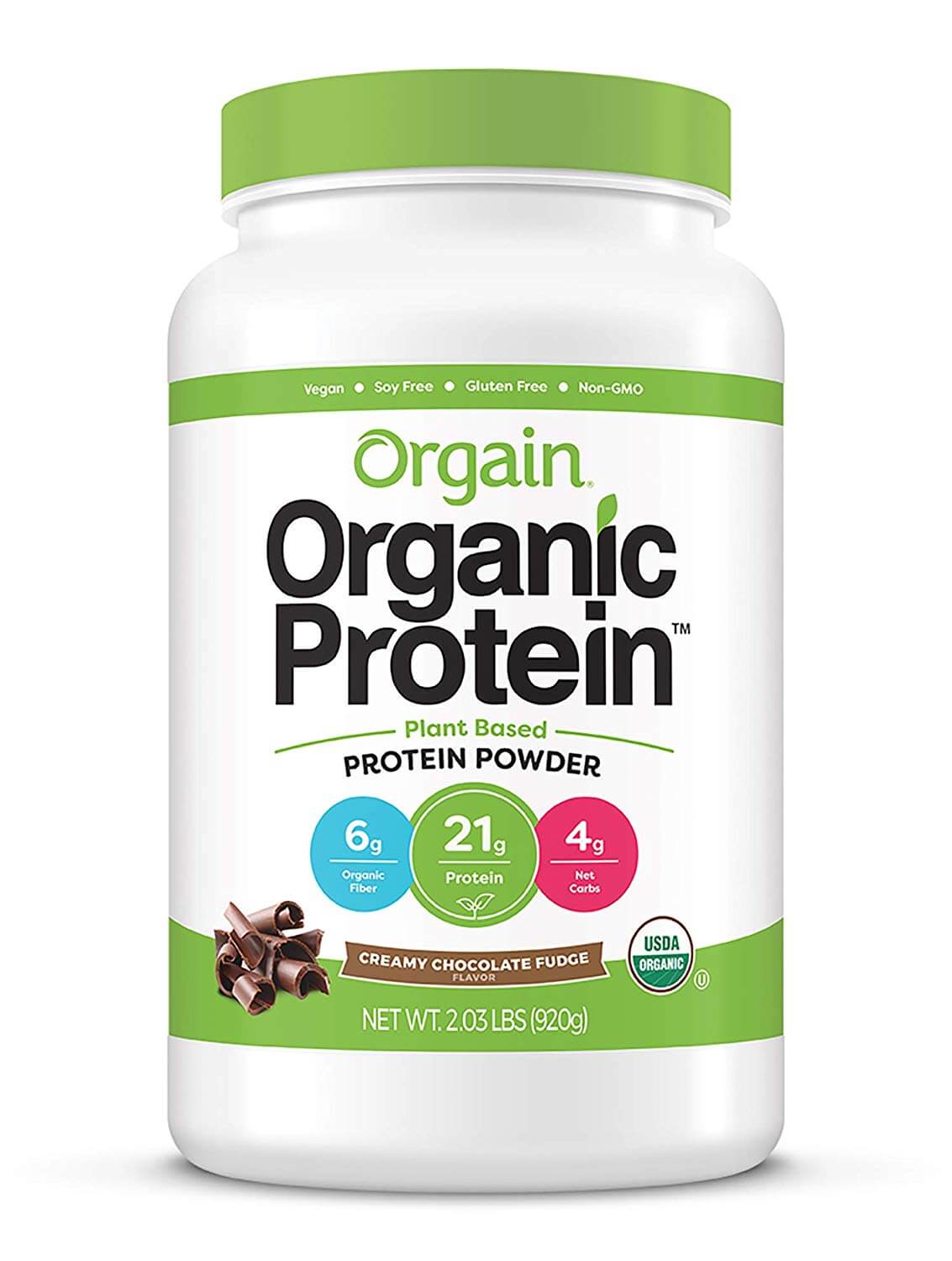

The protein in one serving is 21 grams, making it very rich in protein.
Each serving is 150 calories, with 15g of carbs , 4g of fat and 5g of fiber. Making it is a complete protein product. The seed protein comes from chia.
It is a flavored powder that can be added to almond milk and plain water.
Pros
- High in protein (21 g per serving)
- 7 g fiber per serving
- Totally dairy-free and non-GMO
- Among the cleanest option in available protein powders
- Provides a huge energy boost
Why we liked it:
This dairy-free non-GMO protein powder is a wonderful energy-booster.
4. Nuzest Clean Lean Protein
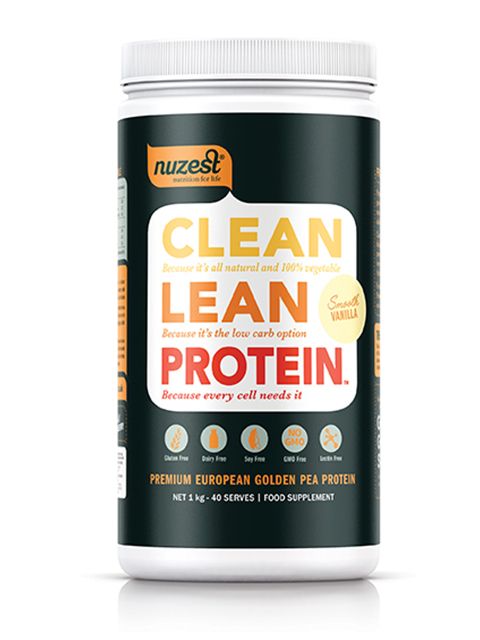

Nuzest contains protein isolate from pea and is free from GMO, gluten, soy and dairy.
It has high protein content per serving (21 g). It has only one gram of carbs and fat, which is great if you are watching your calorie intake.
For baking, you will like Just Natural, the neutral flavor option.
The neutral flavor may not go down well with plain water. Still, one can combine it with something like coconut milk to enhance taste.
Pros
- High level of protein per serving (21 g)
- Good for weight watchers with just 1 g of fat and carbs in each serving
- Available in many flavors
- Neutral-flavour would be great for baking
- Protein source is purely pea
Why we liked it:
Low calorie content makes this powder ideal for those mindful of their intake.
5. LeanHemp Pure Hemp Protein Powder
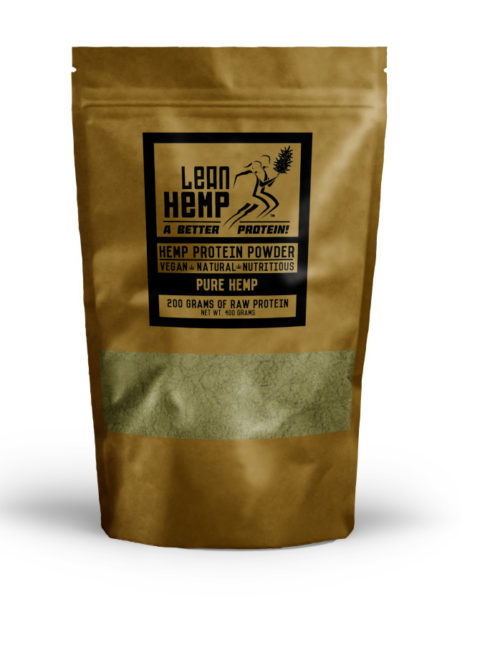

This protein powder from LeanHemp is manufactured using pure hemp seeds. Each serving contains 20 g of seed protein coming from hemp, and has 7-8 g fiber. The good thing is its availability in three flavors – chocolate maca, pure hemp and peanut butter. For those who love chocolate, the chocolate maca can become a hot favorite.
For those who love chocolate, the chocolate maca can become a hot favorite. The flavor blends cocoa with coconut sugar and maca root powder. This, along with the main ingredient, hemp seeds powder.
Those avoiding sugar can go with the pure hemp protein option low on sugar and carbs.
Pros
- Protein per serving is 20 grams
- 7-8 g fiber in a single serving
- Rich with all essential amino acids
- Comes in a variety of flavors
- Low carb and sugar variants available
Why we liked it:
We think LeanHemp is an ideal protein powder because of its popular flavors. It surely makes for a tasty protein mix.
6. Zen Principle Organic Brown Rice
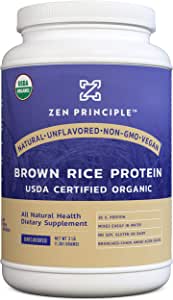

This protein powder is made of brown rice and is hypoallergenic. Hence, it is a healthy plant-based option and a great choice for those with soy or nuts allergy. A serving contains 26 g brown rice protein derived from whole grain brown rice. There are no unwanted carbs or fats.
Pros
- Per serving protein is 26 grams
- Hypoallergenic
- No additives
- Good source of organic rice protein
- Great for post-workout recovery
Why we liked it:
This hypoallergenic brown rice protein powder has high protein content. That too, without the undesirable fats and carbs. Hence, it is very effective for post-workout recovery.
7. Garden Of Life


Garden Of Life is a nutritionally dense blend of protein that combines brown rice protein and pea proteins.
It has 13 organic sprouts as main ingredients, inclusive of pumpkin seed.
It contains lentils, pumpkin seeds, quinoa, buckwheat and chia seeds. Hence, it a great vegan protein. The powder packs in an extensive range of ingredients and several vitamins including A, D, E and K.
It is an unflavoured and raw vegan protein powder with 22 g protein per scoop.
It also has very few calories (only 110 per serving), and just 2 g carbohydrates and 2.5 g fats. This makes it great for those wanting to shed off the extra pounds.
Pros
- High protein per serving (22 g), predominantly from pumpkin seed and chia.
- Nutritionally dense, brown rice, pea proteins, containing 13 organic sprouts
- A protein blend packed with minerals and multiple vitamins
- Low-calorie
- No sugar
Why we liked it:
Garden Of Life is high on nutrients, which makes it a healthy option for meal replacement. Also, the absence of sugar and low-calorie content per serving makes it attractive to those watching their weight.
8. IronVegan Athlete’s Gainer


IronVegan Athlete’s Gainer helps gain weight and muscle. Hence, why it’s liked by bodybuilders.
Its ratio of carbs-to-protein is 2.85:1, packing in 720 calories in a single serving.
Two scoops contain 120 g carbs, 42 g protein, 8 g fats, with low sugar content.
Pros
- Protein per serving is 42 g
- Carbs in a single serving are 120 g
- Low sugar content
- For building muscle and weight gain
- Tastes good
Why we liked it:
Do you want to gain weight and body build? Then, IronVegan Athlete’s Gainer is your go-to option. The high calorie content and carbs-to-protein ratio helps bulk up muscle.
9. BulkSupplements
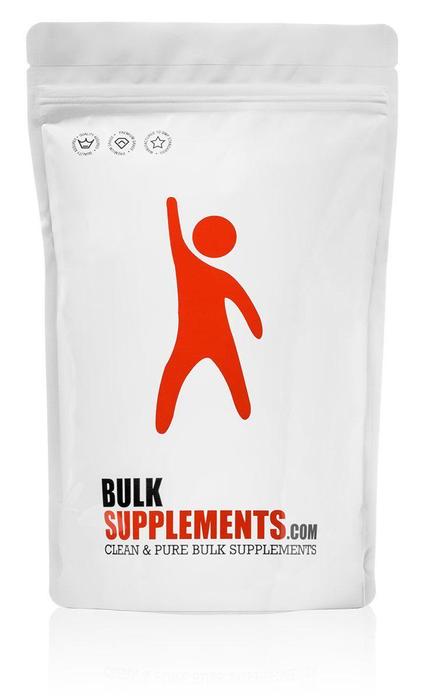

BulkSupplements is the cheapest vegan protein powder product available today. It is a pea protein powder with high protein and low carbohydrate content. It delivers the added benefits of being a non-dairy, non-soy and gluten-free product.
If allergies are a concern, this may be a good option.
Per serving protein is 24 g and carbs and fat are just about one gram.
Pros
- Cheapest available option among vegan protein powders
- Hypoallergenic
- Rich protein source with 24 g per serving
- Low carbs and fat content
- Unflavoured and blends well with other drinks
Why we liked it:
BulkSupplements is not only pocket friendly, it combines well with other drinks. Being unflavored, it blends easily when added with a drink.
10. EarthChimp
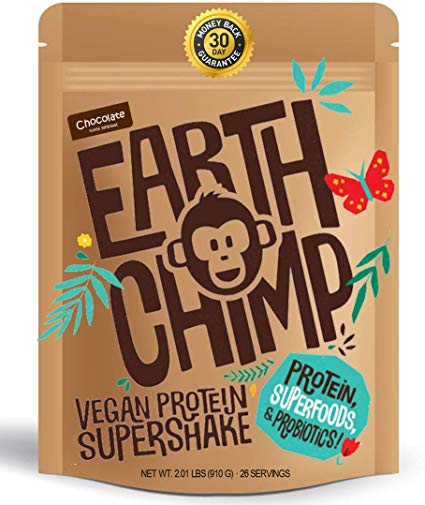

EarthChimp scores high on taste among the available vegan protein powders. When combined with frozen fruits, it can be a refreshing recovery shake.
Each serving has 20 g protein and 2.5 g fats.
The carbohydrate content is high (18 g in a single serving). But, the 5 g fiber and probiotic content per serving make it a sure winner.
Pros
- 20 g protein per serving
- Gut-friendly, contains probiotics and 5 g fiber
- No artificial flavors
- Chocolate variety available
- No distinct earthiness in flavor
Why we liked it:
Unlike most plant-based protein powders, EarthChimp does not have earthiness in its taste. This makes it a favorite power-packed shake option when added with fruits.
Buyers Guide:
What vegans look for when choosing a plant-based protein powder?
1. Value per dollar
A buyer wants maximum protein content at minimum expense. Now, how much does a gram of protein cost?
It is the (servings per container) * (protein per serving) / price
To calculate, use this simple formula. Multiply the number of servings per pack and the protein available in each serving. Divide this by the price. Protein isolate is regarded to provide more value per dollar than concentrate.
2. Quality of protein
Bioavailability is crucial. Plant-based proteins need to be of good quality with enhanced bioavailability.
The choice between protein concentrate and isolate is another consideration. Isolates are rich in protein content per serving but tend to be costlier. Choose what works well for you budget-wise and for nutrition.
3. Protein yield
What is protein yield? Why my choice of protein powder should consider this?
Complete protein yield is nothing but the percentage of protein blend in your supplement. A supplement with high a percentage of protein comprises less of the other macros.
You won’t need these other macros unless your fitness goal is to bulk up and consume more calories. If not, you will need high-quality proteins at higher percentage in your supplements.
4. More ingredients or better nutrition?
A vegan protein powder needs to be healthy. This means that it must include good-quality proteins. Additionally, essential amino acids, vitamins, probiotics and minerals are welcome. Sweeteners, unhealthy carbs, fillers, gums and additives are unsafe nutritionally. They are best avoided.
Vegan nutrition labels can be confusing indeed. Look out for the above stuff and you are safe to go. Simple nutrition labels help most in choosing your plant-based protein supplement. Stay clear of long-winded complicated products.
5. Powders that mix well and taste good
Vegan protein powders need to taste good. At the same time, they should mix well into fruit smoothies or nut milk.
Decide how you plan to have your plant-based protein powder. This will help you choose between flavored and unflavored variants.
Flavoured ones go well with plain water or milk. Go with the unflavored options if you want to have them with every kind of food.
Buyers’ Guide Question
I am an athlete, how much protein should I include in my vegan diet?
Do you want to maximize muscle gain? Then, your protein intake needs to be 0.73-1 gram for each pound of body weight or 1.6-2.2 grams per kg weight.
This means that 1.6-2.2 x 80 (in grams) for a vegan athlete weighing 80 kilograms (176 lbs). It comes to a daily intake of 176 to 128 grams of protein.
Conclusion
Vegans rely on plant-based protein sources. The choice of vegan protein often has to do with our aim and special requirements. A bodybuilder will go with the high-calorie ones. Those looking to lose weight may like low-carb high protein variants.
Are you anxious about allergens or sensitive to certain additives?
Hypoallergenic options are best for you then. There are many varieties to choose from. Our reviews of the ten best vegan options can help you select what works for you.
Expert Tip:
Foods based on soybeans are among the best vegan plant-based proteins. This is according to the International Olympic Committee Consensus on Sports Nutrition.
Soybean based protein is rich in fiber, vitamins and minerals. They keep away chronic health conditions.
Did You Know?
You can maximize muscle gain by including between 0.73 and 1 gram of protein for each pound of body weight.
This means 1.6 to 2.2 g of protein per kilogram of your weight.

